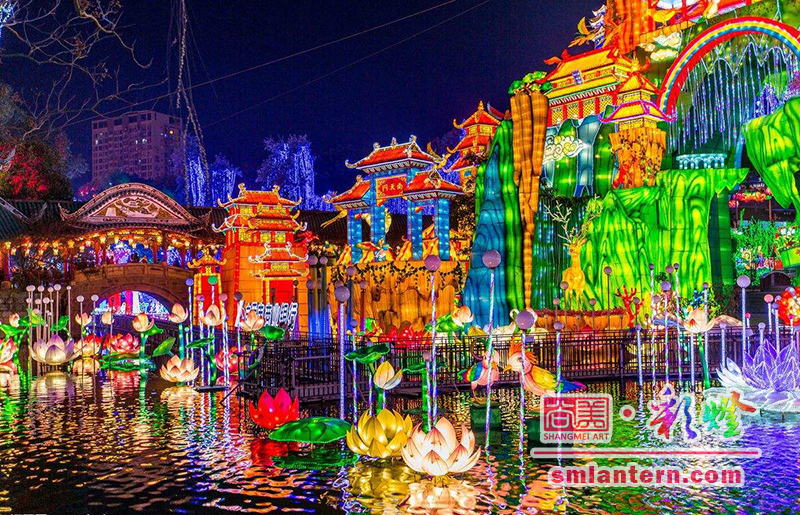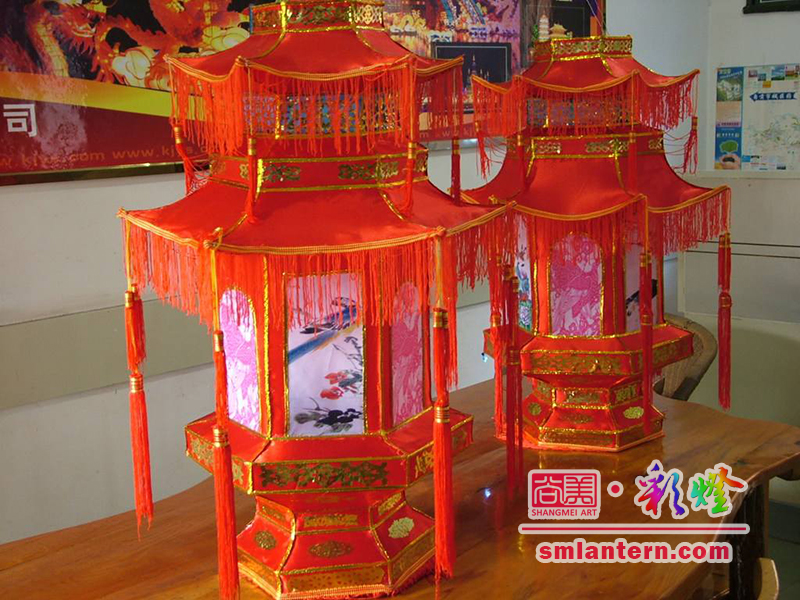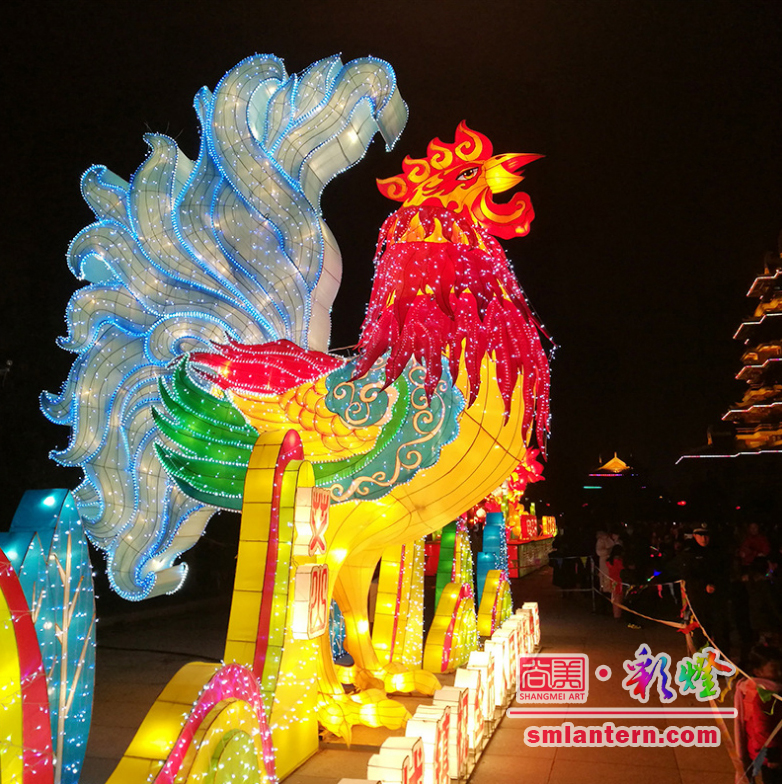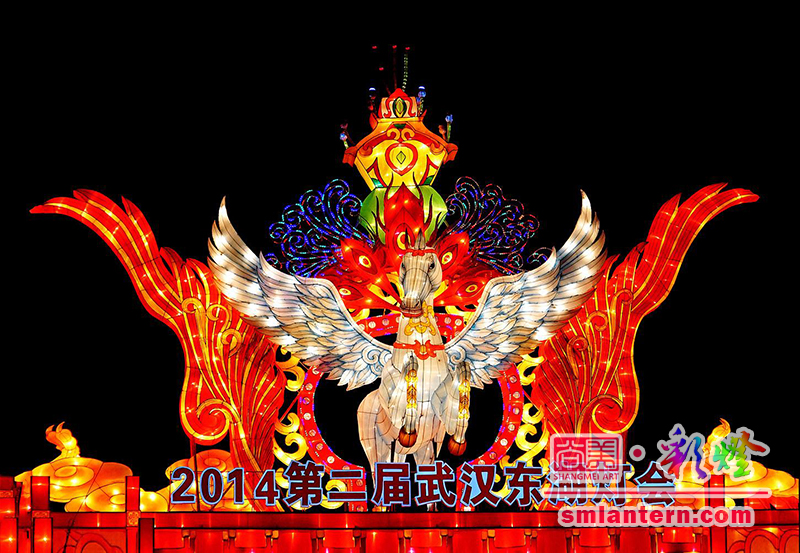
paper lanterns, originating from eastern han dynasty (25-220), mainly were used as lamps in ancient china. a variety of crafts were used in their making such as chinese paintings, paper-cutting, and pricking and seaming and many kinds of materials such as bamboo, wood, wheat-straw and metal were used in their manufacture. paper and silk were the major materials.
once used for lighting before the introduction of gas and then electricity, lanterns are now merely decorative or more significantly used during of the yearly lantern festival.
ancient types
palace lantern

antique lantern
it was mainly used in palaces in ancient time. it is famous for the delicate craftsmanship, graceful and dignified pictures as well as the courtly features. fine wood was used to make the frames that were covered in silk or glass when making palace lanterns. different kinds of patterns were drawn on the covers. with dragon and phoenix patterns on them, these lanterns were not only used as lamps but also as decorations in palaces. their shapes were diverse, such as octagonal, hexagonal and even diametric.

cock-shape lantern
gauze was used to cover the lantern. bamboo was used to make frames but wire is used now, while the candles are replaced by bulbs. among these lanterns, red ones are recognized the most throughout the world. red gauze was used when making them. in chinese culture, the red lantern is the symbol of booming life and prosperous business, so they are always hung on important festivals such as lantern festival, chinese new year and chinese national day in parks or along main streets. in some famous chinatowns abroad, you can see red lanterns all the year round. they have become a symbol of chinese culture worldwide.1,000 years ago, this kind of lantern appeared in china, which was usually used for entertainment. the shape is much like that of the palace lanterns and there were two layers of covers. paper-cuts are pasted or pictures are drawn on the inner layer. when lit, the heat causes a paper wheel inside the lantern to rotate so that moving pictures appear on the outer cover.
there were other kinds such as lanterns with chinese characters or auspicious words on them. those with characters were always used in officials’ houses, because the characters were often the surnames of the officials’ families. the lucky lanterns would bear the name of a deity or have a picture of a deity on them.
today's lanterns
now more types of lanterns appear in festivals apart from the traditional ones. more modern technology is used on making lanterns, so people can see lanterns with music, with colorful bulbs inside and so on. the shapes of the modern lanterns have changed a lot too. these shapes can be cartoon characters, chinese zodiac animals and the makers can even involve the computer games, which give visitors a different new and fresh impression.

horse year lantern
purchasing lanterns in marketfor common people, lanterns are hung up from the eve of spring festival (dec. 29th of lunar year) and not removed until the lantern festival (jan. 15th of lunar new year). the lantern show is an attractive activity around the day of lantern festival in many cities. if you want to see the lantern fairs, beijing, nanjing, xian, shanghai and hangzhou have their unique shows during the festival.
on the lantern show, many people love the ‘lantern riddles’ most. anyone who knows the answer to the riddles on the lanterns will get a small gift as award. the activity attracts people because of the riddle itself rather than the gift. the interesting riddles make the colorful lantern shows more interesting.
before the lantern festival, all kinds of lanterns are sold along the street and these beautiful lanterns light the dark nights. in chinese culture, an uncle needs to buy his nephew (under 12 years old) a lantern before the festival. it is the happiest time for children to playing with their companions outside the houses. the red lanterns stand for the best wishes uncles have for their nephews, hoping their nephews grow up happily and are as healthy as last year.





